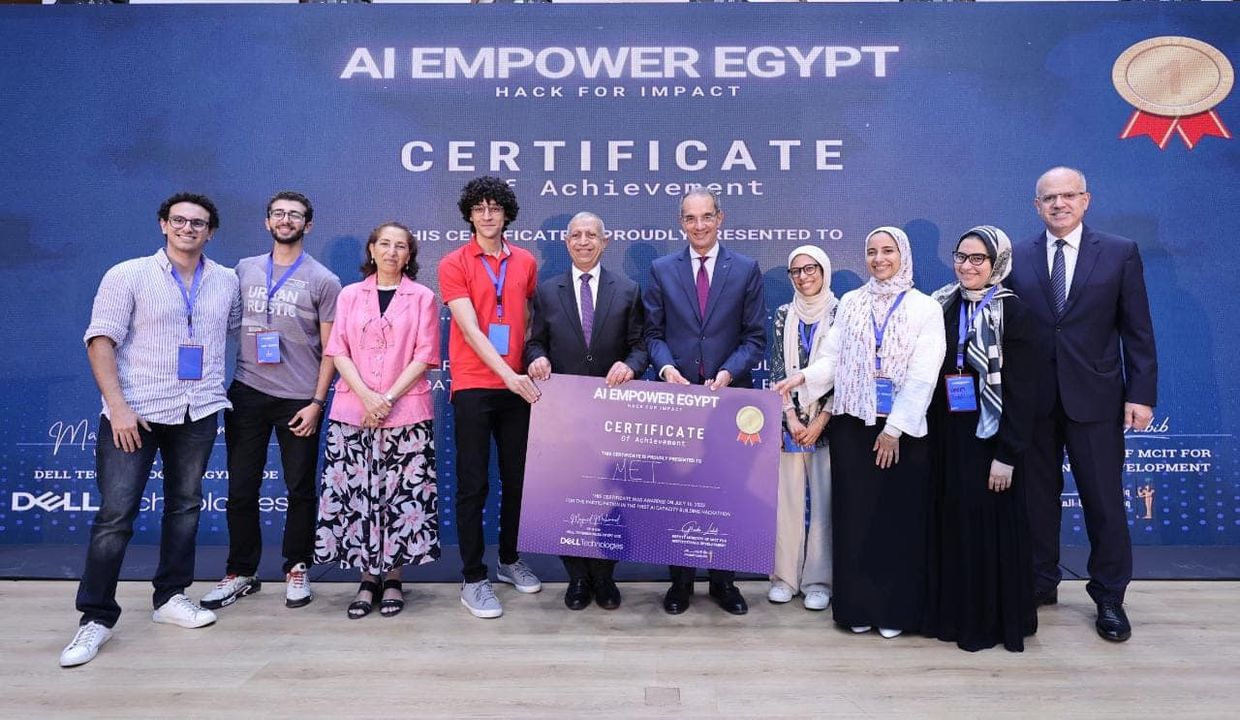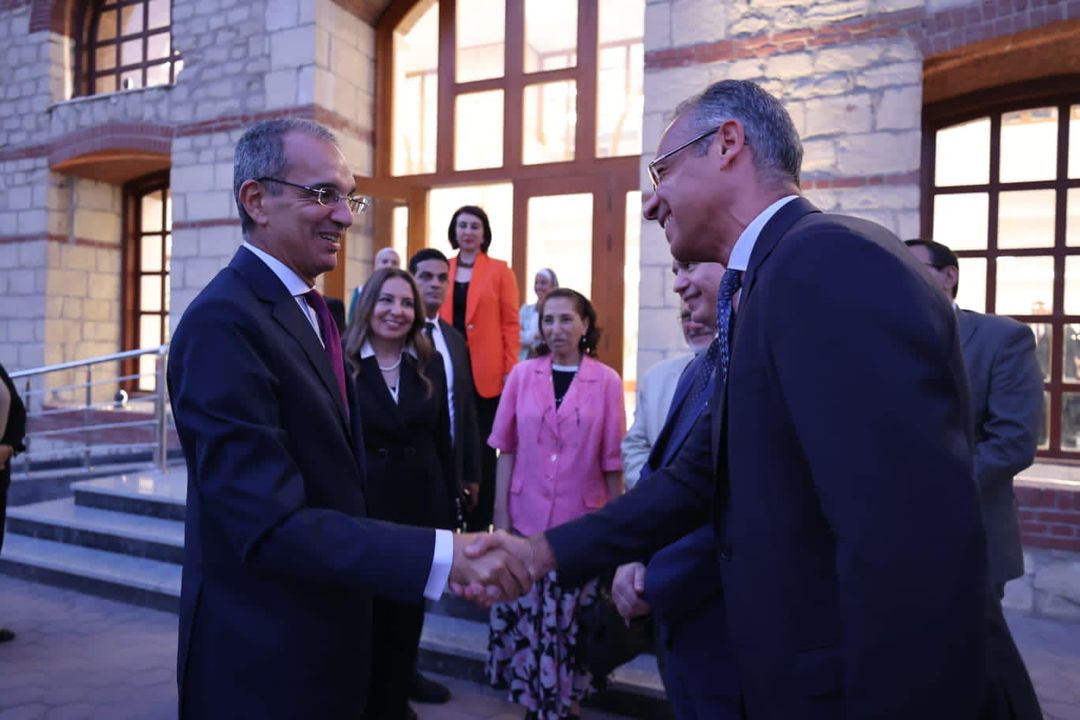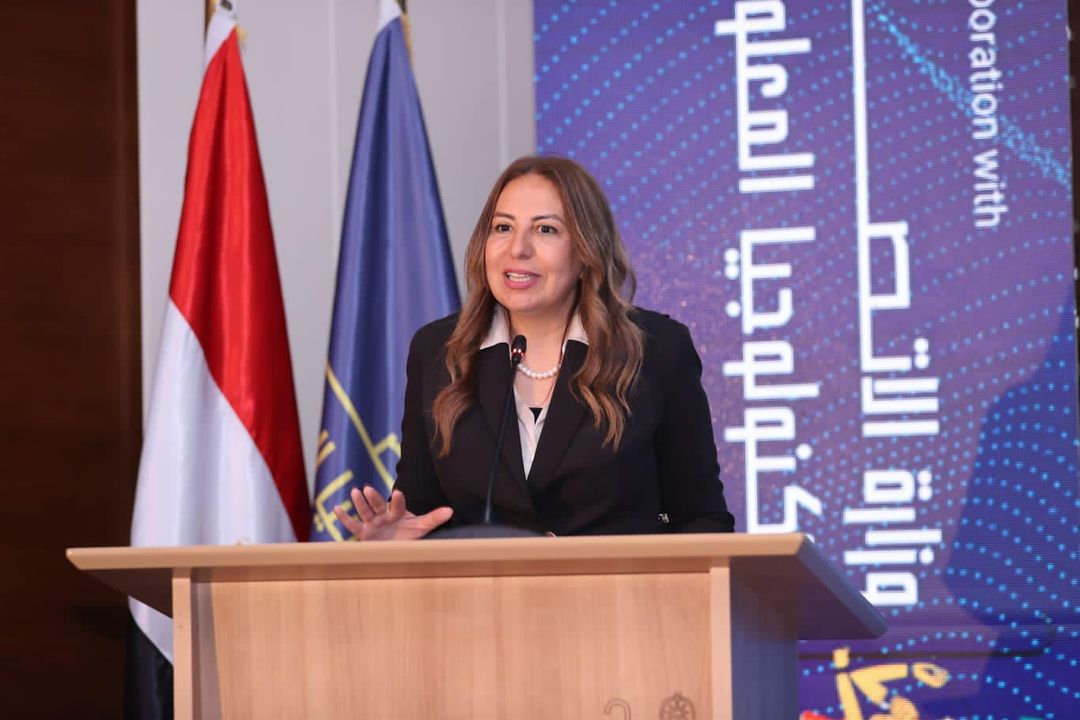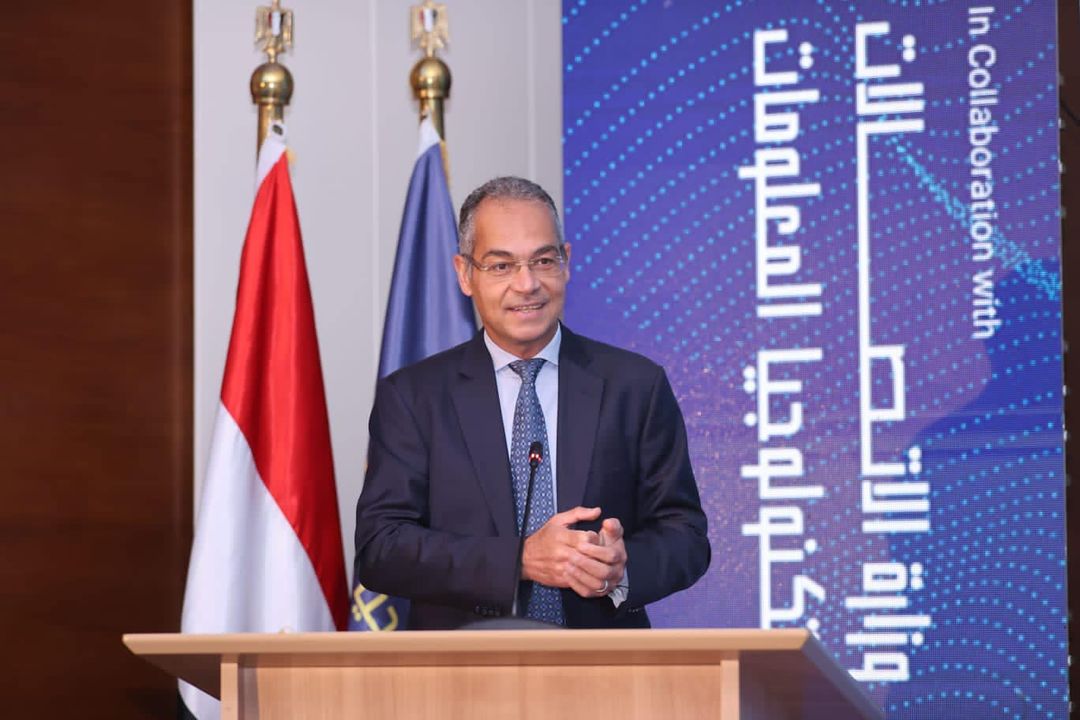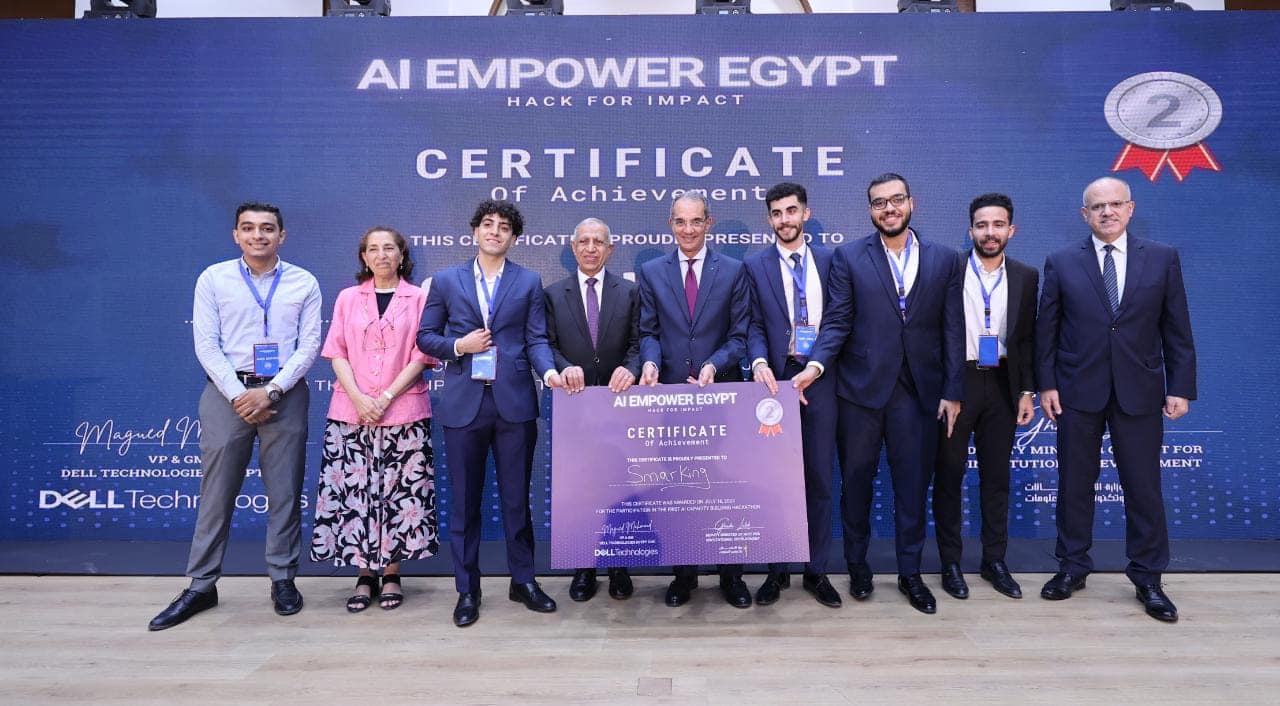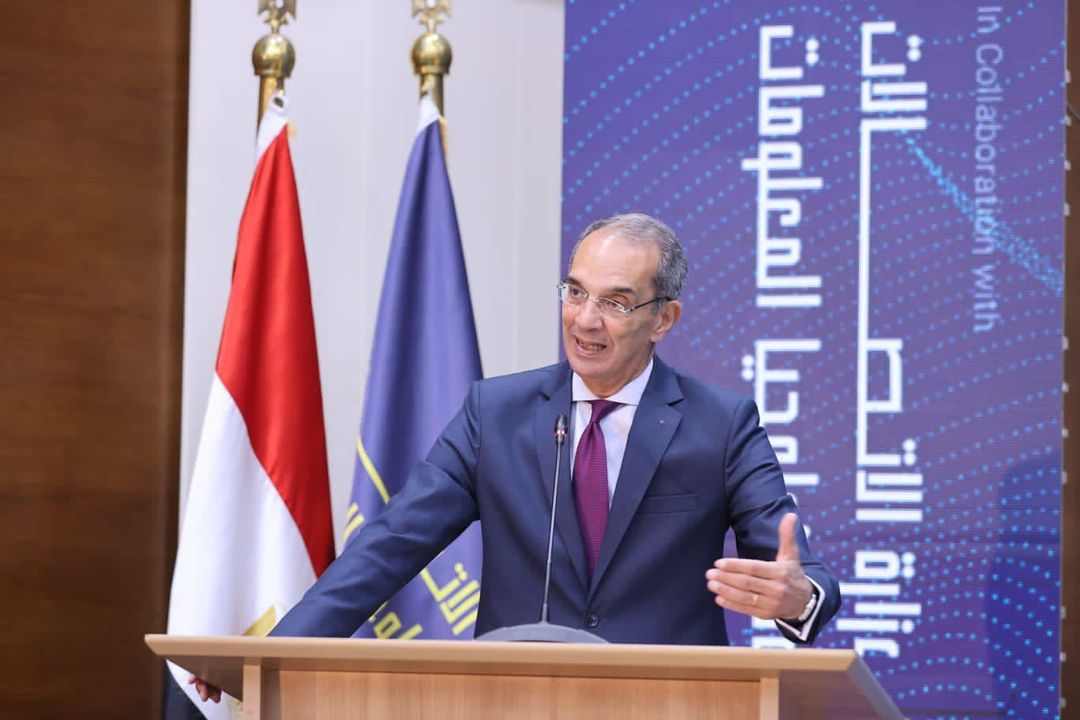The Minister of Communications and Information Technology Amr Talaat has attended the closing ceremony of round one of the Artificial Capacity (AI) Capacity Building Initiative.
The initiative was carried out at Giza Creativa Innovation Hub, in collaboration between the Ministry of Communications and Information Technology (MCIT) and Dell Technologies – Egypt. Batch one included 500 students from Cairo University, Ain Shams University, the American University in Cairo (AUC), the German University in Cairo (GUC), and the Arab Academy for Science, Technology, and Maritime Transport (AASTMT).
The closing ceremony featured a hackathon on improving water efficiency in Egypt using AI. Sixty university students, making 10 teams, competed in the hackathon.
The ICT Minister delivered an address during the ceremony. He said the initiative is of paramount significance as it focuses on a top ICT field, namely AI. Talaat mentioned that Egypt moved up seven spots on the Global AI Index by Tortoise Media, which ranks nations on their capacity for AI. The country also climbed 17 spots on the AI skills index.
Talaat referred to the national efforts to promote the use of AI. Efforts included creating the National Council for AI, which brings together key players in the AI industry, and forging the National AI Strategy.
The AI Capacity Building Initiative is an embodiment of the productive cooperation between the elements of the information society: the government, academia, private sector, and creative youth, remarked the ICT Minister. He added that the key to success in the ICT field is harnessing technology to make an impact and tackle society’s challenges in different sectors.
MCIT is launching more training programs in collaboration with top global companies and academic institutions to increase the number of professionals capable of harnessing technology, most notably AI, to serve different state sectors, Talaat noted. The Ministry creates more programs that target school students, university students, and graduates, encouraging young people from different academic backgrounds to get into ICT and start a successful career in that field, he added.
Talaat referred to MCIT efforts to promote innovation and creative thinking among youth to exploit technology for the good of society through Creativa Innovation Hubs. They are home to young people wishing to turn their ideas into start-ups. He said that six Hubs were first established, and in two years, there were 12 Hubs. By the end of this year, the ICT Minister stated, there will be 20 Hubs in 20 governorates.
Talaat called on the students to keep learning and gain more knowledge to keep up with the rapid technological change.
For her part, the Deputy ICT Minister for Institutional Development Ghada Labib remarked that MCIT was keen to include in the AI Capacity Building Initiative not only upskilling students, instructors, and professors, but also hands-on training. For that, the Applied Innovation Center (AI) participated in the initiative to cover the practical aspect of the training in areas including resource sustainability, smart government, smart cities, and smart agriculture. The optimal use of water resources was the theme of the hackathon organized within the closing ceremony of round one.
The Head of AIC Ahmed Tantawy commented that MCIT strives to leverage and use modern technology. He highlighted the role of the initiative in linking science to practical application in innovative projects with a positive impact on society. Tantawy commended the projects implemented by batch one students.
General Manager, Egypt Center of Excellence at Dell Technologies Magued Mahmoud explained that the initiative is strategically important since it revolves around AI, a thriving industry with a growing impact on different areas. The initiative reflects the significance of creating a skill pool in AI to help young people land decent jobs, thus reflecting positively on the ICT sector.
Mahmoud said that MCIT identified the topics of primary focus in the initiative. He added that round one featured several activities where experts guided students and introduced them to technological advancements.
The ICT Minister honored the three winning teams in the Hackathon. The first-place winner was MET, a team from GUC that developed an application to help families rationalize water consumption. Smarking from AASTMT won second place for a project aimed at detecting plants’ consumption of water. In third place came IET Team from GUC. The team created an application to be implemented in Toshka for predicting water consumption in agriculture.
It is worth mentioning that in December 2021, MCIT and Dell Technologies – Egypt signed five tripartite cooperation agreements at the headquarters of the Council of Ministers, in the presence of the Prime Minister, with parties including AASTMT, Cairo University, Ain Shams University, AUC, and GUC. The aim is to train university students in AI.
The first round of the initiative lasted for a full academic year. It included five stages: developing curricula in data collection, science, and engineering; teaching the curricula to 35 professors and instructors, holding educational workshops for instructors and students, and training students on the curricula and in topics selected by MCIT, namely smart government, smart agriculture, and smart cities. Students also received training on HPC at AIC. The students executed 67 projects.
The closing ceremony was attended by the CEO of the Information Technology Industry Development Agency (ITIDA) Ahmed Elzaher, Advisor to the ICT Minister for Technology Innovation, Electronics Industry and Training Hossam Osman, President of Egypt University of Informatics (EUI) Reem Bahgat, Director of the National Telecommunication Institute (NTI) Ahmed Khattab, AASTMT President Ismail Abdel Ghaffar, GUC President Yasser Hegazy, and Dean of the Faculty of Computer and Information Sciences at Ain Shams University Nagwa Badr.
bit.ly/3OimDza
CapacityBuilding AI
وزارة الاتصالات وتكنولوجيا المعلومات-مصر
